He was receiving a torrent of memories as he looked at the chair from which she had looked at him, with a face that retained only the faintest trace of his past. A widow, worn down by fatigue and mourning, but proud of her true victories. Memories surrounded him like flocks of violets. He remembered how the daughters of the house of infamous marriage married one after another, despite what he had heard repeatedly that these girls were not meant for marriage and that no one would seek to marry them. Every time he heard news of their successful marriage, he was astonished and lost his balance. In the evening, he secluded himself in his study, while his wife and daughters were busy preparing for the awaited ballet evening. It was not strange for him to take out his old diary from the drawer where valuable papers such as the land ownership contract and the insurance policy were kept. Since his adolescence, he had been accustomed to recording his emotional and social events day after day. He saved its pages to go back to 1925 and around it, even the telephone number alone, and out of an motive he did not know the nature of, his hand reached out to the telephone dial and dialed the old number. A voice came to him, “Hello?” So he asked it, smiling mischievously, “Beit Halawa?” The voice hit him harshly: “No, sir… This is the Tambali shop for selling burlap.”
“A House of Bad Reputation” is a collection of short stories that tells some of the stories of the people. Naguib Mahfouz meticulously drew its characters, moving them within frameworks that reflect their inner selves, expressing their pain and dreams, and their natures, which are often hidden behind multiple masks. However, most of these masks are required by social customs and traditions. Therefore, Naguib Mahfouz’s narrative performance, in addition to his wonderful literary style, his gentle expressions, his enjoyable atmosphere, and his engaging events, contains within it treatments that delve deeply into psychology, sociology, and… and…, creating in his stories spaces for psychological and social studies, and, first and foremost, a space for enjoying an engaging literary work of fiction.
A House of Infamous
د.ا6.00
A social novel that sheds light on the social conditions and psychological challenges facing members of society within a framework of suspense and drama.
Available on backorder
| Categories: | Literature, Novels, stories, World literature |
|---|---|
| Tags: | literature, Novels, Sociology, stories |
| Author | |
|---|---|
| Year | |
| Publisher | Dar Al-Shorouk |
You may also like…
-
The Final Decision
د.ا6.00A philosophical novel that addresses issues of life, death, and fateful decisions, through a personal experience in which questions of existence and destiny intertwine.
-
The Black Cat Tavern
د.ا6.00A collection of short stories that sheds light on Egyptian reality through marginal characters, revealing the inner struggles of man in the face of life and society.
-
God’s World
د.ا6.00A philosophical collection of short stories that explores human questions about fate, faith, and life through intensely symbolic scenes.
-
The Struggle of Thebes
د.ا6.00The novel tells in an epic style the story of the Egyptians’ resistance to the Hyksos occupation, embodying their struggle to regain freedom and national dignity.
Related products
-
What’s left is yours
د.ا2.13Ghassan Kanafani is a Palestinian novelist, storyteller, and journalist, and is considered one of the most famous Arab writers and journalists in the twentieth century. His literary works, including novels and short stories, were deeply rooted in Arab and Palestinian culture
د.ا3.55 -
Lover
د.ا2.13Ghassan Kanafani is a Palestinian novelist, storyteller, and journalist, and is considered one of the most famous Arab writers and journalists in the twentieth century. His literary works, including novels and short stories, were deeply rooted in Arab and Palestinian culture
د.ا3.55 -
About men and guns
د.ا2.13Ghassan Kanafani is a Palestinian novelist, storyteller, and journalist, and is considered one of the most famous Arab writers and journalists in the twentieth century. His literary works, including novels and short stories, were deeply rooted in Arab and Palestinian culture
د.ا3.55 -
Palestinian resistance literature under occupation
د.ا3.55Ghassan Kanafani is a Palestinian novelist, storyteller, and journalist, and is considered one of the most famous Arab writers and journalists in the twentieth century. His literary works, including novels and short stories, were deeply rooted in Arab and Palestinian culture
د.ا4.97 -
The Forty Rules of Love
د.ا10.65is a novel written by the Turkish author Elif Shafak,[1][2][3] Her interest in writing this book was influenced by the degree she received in Gender and Women’s Studies.[4] The book was published in March 2009.[5] It is about the Persian mystic poet Maulana Jalal-Ud-Din, known as Rumi and his companion Shams Tabrizi.[6][7] This book explains how Shams transformed a scholar into a Sufi (mystic) through love.[8] More than 750,000 copies of this book were sold in Turkey and France
د.ا12.78 -
Death bed number 12
د.ا3.55Ghassan Kanafani is a Palestinian novelist, storyteller, and journalist, and is considered one of the most famous Arab writers and journalists in the twentieth century. His literary works, including novels and short stories, were deeply rooted in Arab and Palestinian culture
د.ا4.97 -
The hat and the prophet
د.ا2.13Ghassan Kanafani is a Palestinian novelist, storyteller, and journalist, and is considered one of the most famous Arab writers and journalists in the twentieth century. His literary works, including novels and short stories, were deeply rooted in Arab and Palestinian culture
د.ا3.55 -
Revolution of 36-39 in Palestine
د.ا2.13Until his early death, Ghassan Kanafani published eighteen books, and wrote hundreds of articles and studies on culture, politics, and the struggle of the Palestinian people. Following his assassination, all of his books were republished in Arabic, in several editions
د.ا3.55

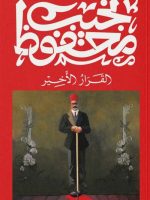
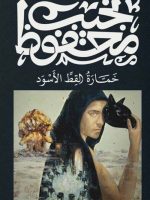
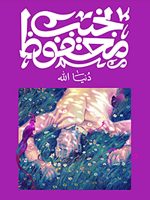
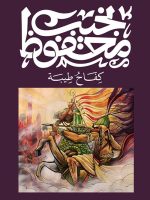
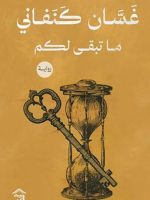



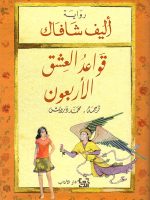
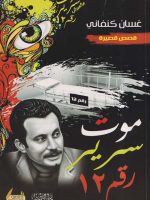
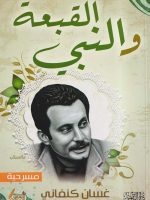
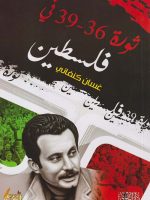
Be the first to review “A House of Infamous”